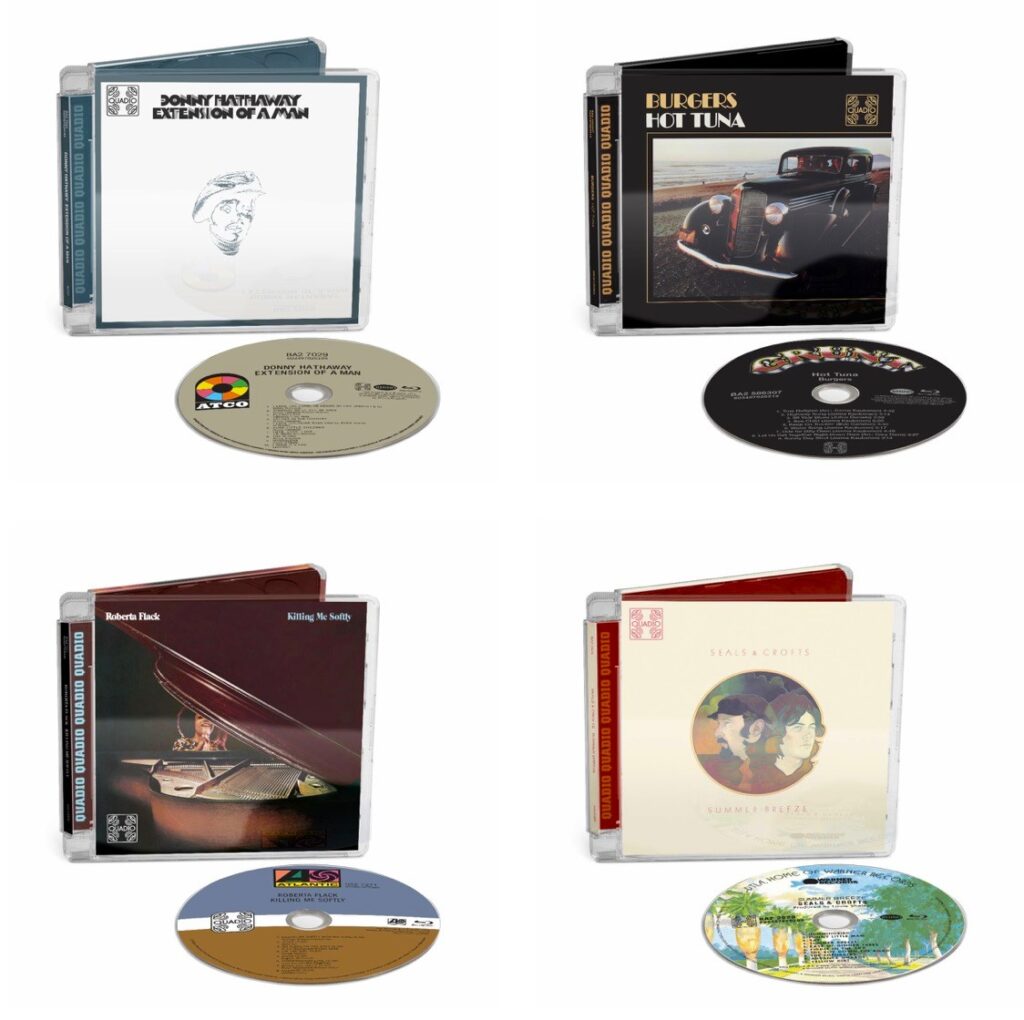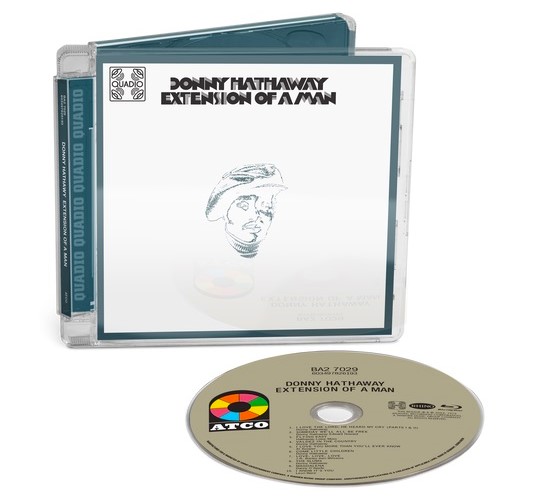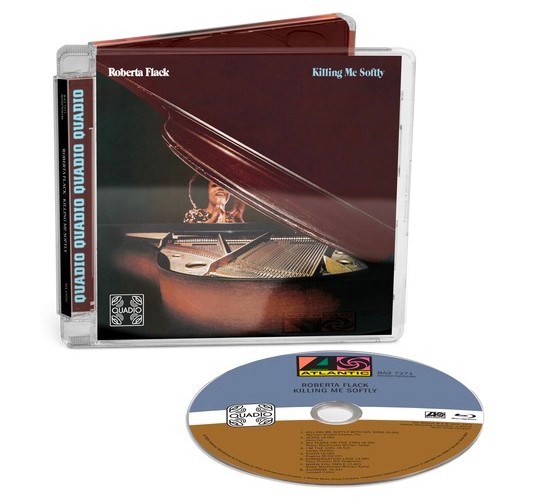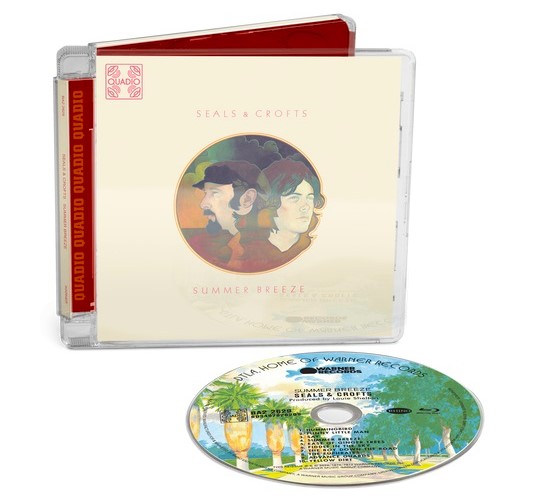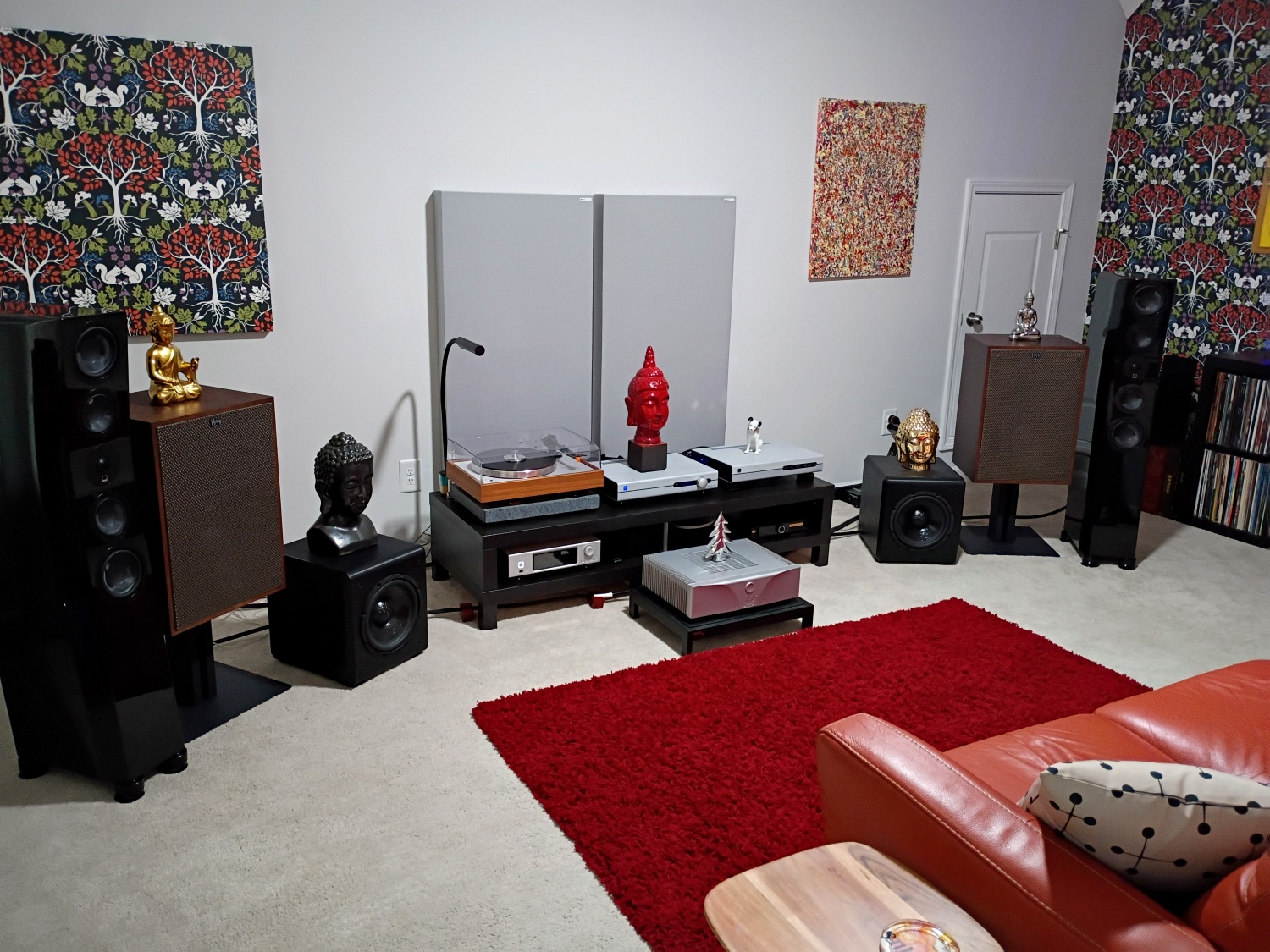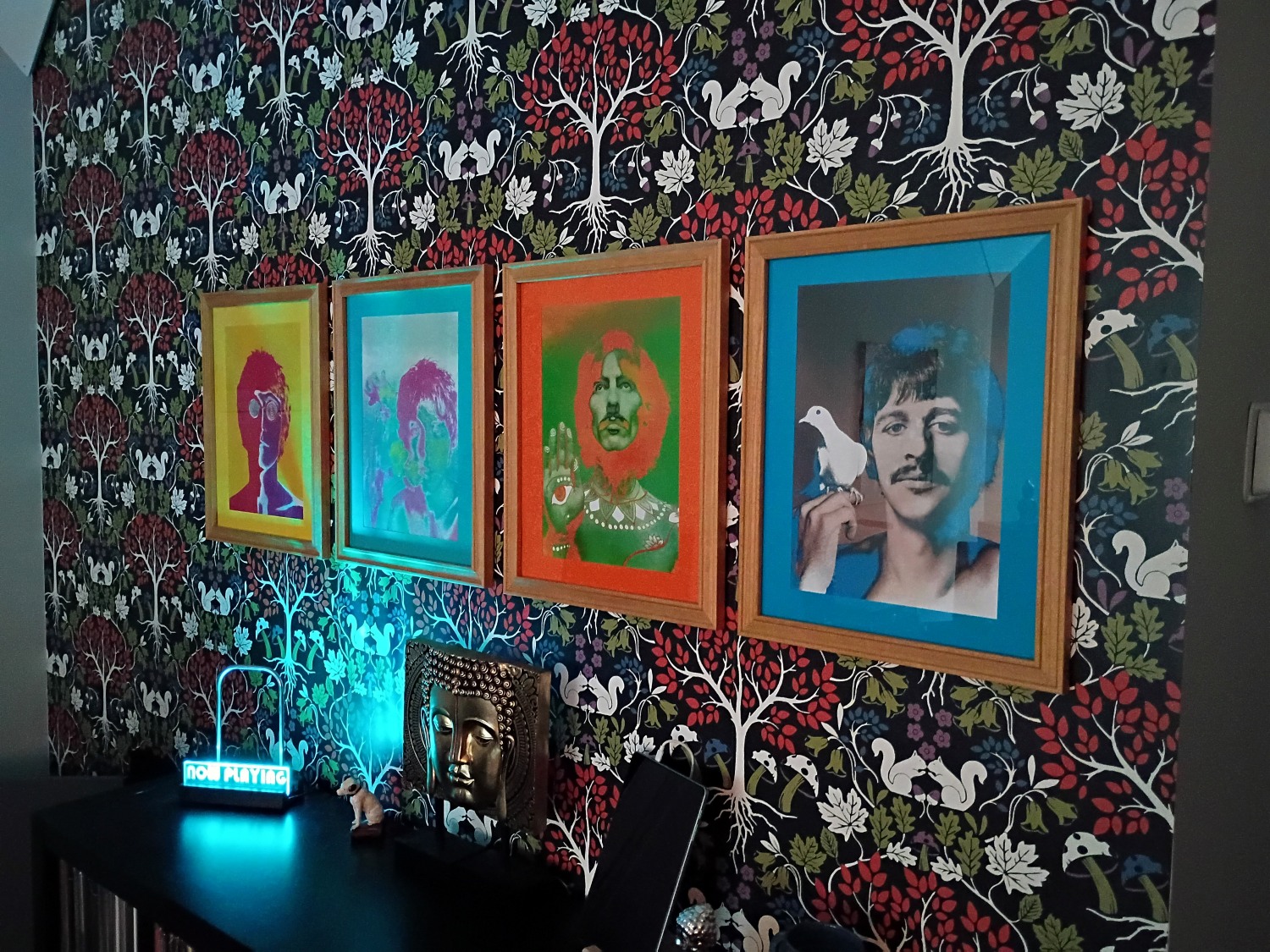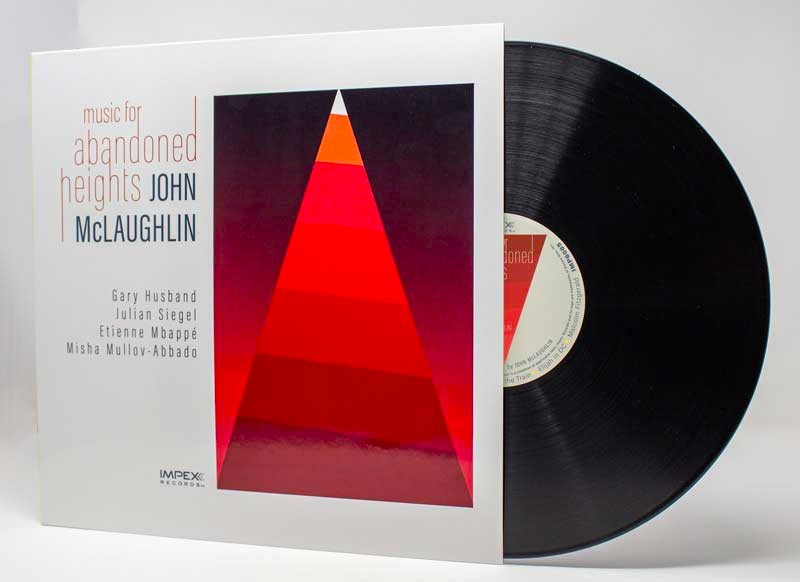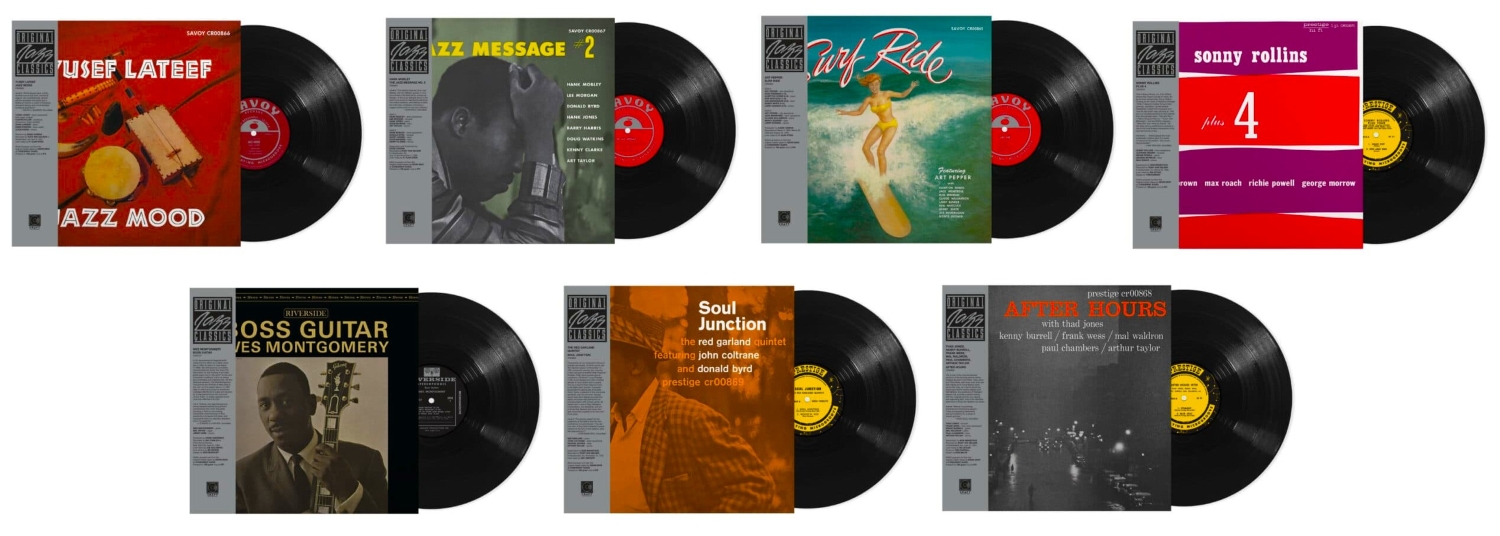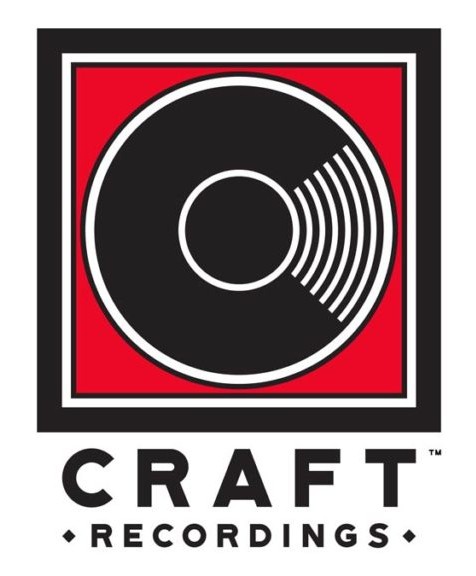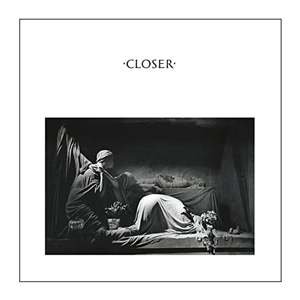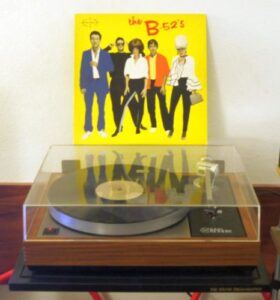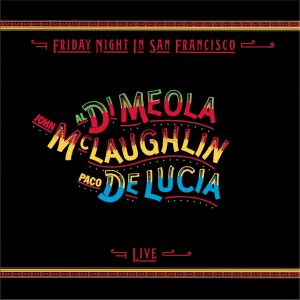Rhino Entertainment has just released the latest four titles in their excellent Quadio Series, which features BluRay audio with a high resolution version each album's original quadraphonic mix, along with high resolution stereo tracks. The four albums chosen for this release include Donny Hathaway's Extension of a Man (1973, Atco Records), Hot Tuna's Burgers (1972, Grunt Records), Roberta Flack's Killing Me Softly (1973, Atlantic Records), and Seals & Crofts' Summer Breeze (1972, Warner Brothers Records). As with the previous Quadio releases, both the original stereo and quadraphonic mixes are offered in high resolution 24-bit/192kHz lossless PCM audio, which is a first for each of these albums. Each Quadio release has featured an eclectic mix of titles, ranging from the rock, folk/rock, jazz, and R&B/soul genres. Rhino's album selections might have puzzled some listeners, but I can't argue with the results, which have been uniformly excellent and entertaining. And as a child of the Sixties and Seventies who wasn't able to hear the original Quad LPs with the technology of the day, it's been a blast to hear the quadraphonic mixes on modern equipment, the way they were intended to be heard—even fifty years after their original release! When Grace Fleisher of Shore Fire Media contacted me to gauge my interest in the latest batch of Quadios, of course, I was all in!
As usual, each of the four albums was supplied in a super jewel box, not at all unlike Super Audio CDs, which definitely helps imbue each disc with audiophile credibility. The Blu-ray disc surfaces all feature the same artwork that appeared on the LP label of the original releases, giving these discs a very authentic appearance. Rhino has put a lot of effort into elevating the Quadio series to a premium level, and the proof is in the listening—these albums have never sounded this good, in any format. You can order the latest group of Quadio releases individually or as a bundle (at a reduced price) from Rhino's web store HERE, but they can also be found at a myriad of online retailers, as well!
Donny Hathaway, Extension of a Man. Blu-ray Audio, $24.98 MSRP
Donny Hathaway was an R&B and Soul singer who was probably mostly known for his duets with Roberta Flack, including "Where is the Love" and "The Closer I Get to You," which reached the number two slot on the Billboard Hot 100 singles chart in 1978. He's probably best known as the co-writer of the song that's become a Christmas holiday standard, "This Christmas," which has been recorded by a plethora of artists. Extension of a Man was released in 1973, and was his final studio album as a solo artist. By the time Hathaway first entered the studio in late 1971, he'd already been diagnosed with paranoid schizophrenia, for which he was reportedly taking as many as fourteen different medications daily. Unfortunately, he reportedly became less focused on taking his medications, and his behavior became progressively erratic personally and in the studio. An attempted return to the studio for continued work on a duets album on January 13, 1979 found his behavior irrational, paranoid, and delusional; later that day, he was found dead after apparently jumping from the 15th floor window of his Manhattan apartment. He was only 34 years old at the time of his death.
Extension of a Man plays like perhaps the best R&B/Soul album you ever heard, crossed with a healthy dose of jazz/funk and fusion, and offers an exceptionally entertaining listen! This actually surprised me to no end; of the four releases Rhino offered in the latest set of Quadios, this one didn't really seem to press any of my buttons, but has been in nearly constant rotation since arriving. The album is an eclectic mix of original songs and instrumentals, and along with Donny Hathaway's lead vocals, he also contributes keyboard work throughout, including Fender Rhodes, Hammond organ, and all of the album's piano parts. He also wrote all the album's arrangements, and Extension of a Man features a cast of supporting players that includes the likes of Stanley Clarke and Willie Weeks on bass, Cornell DuPree, Hugh McCracken, and David Spinozza on guitars, Grady Tate, Fred White, and Rick Marotta on drums, David Newman and Herbert Laws on woodwinds, and an entire ensemble of brass players, a string section, and a bevy of backup singers.
The album's most notable tracks include the instrumental opener, " I Love the Lord; He Heard My Cry (Parts I & II)", which plays like an expansive soundtrack to a movie—and Hathaway's Fender Rhodes' runs and fills absolutely sparkle as it segues into a keyboard-heavy and poignant "Someday We'll All Be Free." I'd probably mostly dismissed Donny Hathaway as just that guy who duetted nicely on a couple of pop songs with Roberta Flack, but he proves here with his keyboard work that, in another, more jazz-influenced world, he might have compared favorably with the likes of Chick Corea. "Flying Easy" is an uplifting tune with more of that excellent keyboard work, and "Valdez in the Country" brings the jazz/funk fusion, again led by Hathaway's excellent Fender Rhodes work—I honestly can't believe I've never heard this track before now! An ultra-soulful cover of Al Kooper's "I Love You More Than You'll Ever Know" is one of the record's many highlights, with a superb sax solo from David "Fathead" Newman, as Cornell DuPree and Hugh McCracken trade guitar licks, while Hathaway wails on the organ. "Come Little Children" finds Hathaway in a more uptempo, propulsively driving mood, while "The Slums" offers a funkified instrumental that's a de facto commentary on the human condition of 1970's Black America. Extension of a Man is a superb album that stunned me with its goodness!
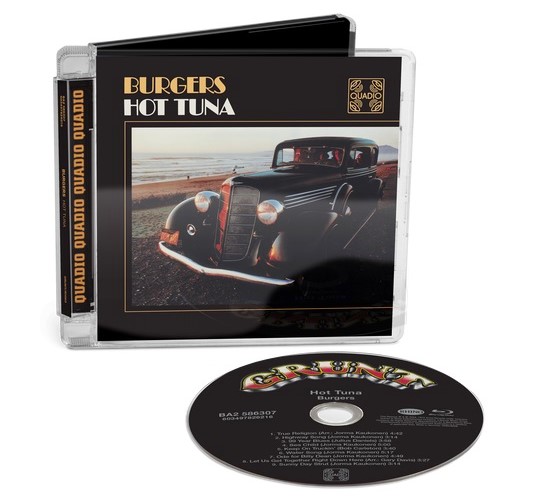
Hot Tuna, Burgers. Blu-ray Audio, $24.98 MSRP
Hot Tuna was originally a mostly acoustic Blues/Rock duo and offshoot of the latter-day Jefferson Airplane that initially only featured guitarist Jorma Kaukonen and bassist Jack Cassidy. 1972's Burgers was the group's third album, but the first actual studio recording, as the first two were both live recordings. By this point, Hot Tuna was a full-fledged electric band that also featured the violin of the Airplane's Papa John Creach, Nick Buck on organ and piano, and Sammy Piazza on drums and percussion. David Crosby provided guest vocals on the tune "Highway Song." Burgers was recorded over a period of a couple of months late in 1971 at Wally Heider Studios in San Francisco, and was engineered by Joe Lopes. Betty Cantor of Grateful Dead fame helped mix the album, which was produced by Jorma Kaukonen. Burgers was a mix of mostly Kaukonen originals and blues standards from Julius Daniels, Blind Boy Fuller, and Reverend Gary Davis, and is probably the finest example of Hot Tuna at their peak as an ensemble.
Burgers retains much of the acoustic flavor of the initial incarnation of the band, with healthy doses of acoustic blues throughout, but with Jorma Kaukonen really cutting loose on his electric guitar solos. The album's opener, the Kaukonen original "True Religion," is a traditionally-styled blues that opens in the acoustic vein, and features some really nice interplay between Kaukonen's acoustic guitar and Papa John Creach's fiddle, before giving way to Kaukonen's searing guitar solo. "Highway Song" is an uptempo Kaukonen original that features none other than David Crosby accompanying the band on background vocals. "99 Year Blues" is the Julius Daniel classic that gives Papa John plenty of room to stretch out on violin; "Sea Child" is another Kaukonen original that features probably his most melodic electric guitar work on the entire album, with a really expressive solo in the song's center. "Keep On Truckin'" is the Blind Boy Fuller tune that was the anthem for a generation of hippies, and Hot Tuna's cover here has become the de facto version of the song. Kaukonen's instrumental "Water Song" features some of his finest fingerpicked acoustic guitar work, and his "Ode for Billy Dean" provides a thrilling contrast, with perhaps his most scorching electric guitar fretwork on the entire record. "Let Us Get Together Right Down Here" offers a fun take on the Reverend Gary Davis original, with some nice solo work from Papa John. The album closes with another Kaukonen instrumental, "Sunny Day Strut," which transitions very quickly from a beautiful acoustic vibe to a harrowing electric guitar showpiece.
Roberta Flack, Killing Me Softly. Blu-ray Audio, $24.98 MSRP
Roberta Flack's 1973 album Killing Me Softly was her fourth studio album (if you don't include the duet album Roberta Flack & Donny Hathaway), and among the greatest successes of her career. The album reached number three on the Billboard pop album charts and number two on Billboard's soul album charts. Killing Me Softly was certified Gold upon shipping in August, 1973, and has since reached double Platinum sales levels. The album's phenomenal sales were driven by the success of its lead single, "Killing Me Softly With His Song," which reached the number one spot on the pop singles chart. Killing Me Softly received a Grammy nomination for Album of the Year, "Killing Me Softly With His Song" won the Grammy for Record of the Year, and Roberta Flack won the Grammy for Best Female Pop Vocal Performance. The album is widely regarded to be the finest example of Robert Flack's vocal artistry.
The recording sessions for Killing Me Softly took place over a period of about a year in 1972-1973 at Regent Sound and Atlantic Studios in New York; the album was engineered by Gene Paul and Bob Liftin, and was produced by Joel Dorn. The sessions included an all-star cast of musicians, including Roberta Flack on vocals and piano, Eric Gale on guitars, Ron Carter on bass, Grady Tate on drums, and Ralph MacDonald on congas and percussion. Eumir Deodato wrote the string arrangements and conducted, and Alfred "Pee Wee" Ellis, William Eaton, and Don Sebesky wrote the horn arrangements. Flack had a particular affinity for the music of jazz multi-instrumentalist Rahsaan Roland Kirk, and dedicated Killing Me Softly to him. The album debuted to a mixed critical reception, but the critics lack of enthusiasm obviously didn't sway the purse strings of the public, who clamored for it.
The album's big hit, the Charles Fox/Norman Gimbel "Killing Me Softly With His Song" kicks off the record in a big way, and leaves no mystery as to why Roberta Flack received so many accolades and scored such impressive album and single sales—Flack's tour de force vocal captured the imagination of listeners like nearly nothing else in 1973. "Jesse," the follower, penned by Janis Ian, was a tribute to the Rev. Jesse Jackson, and was the album's second single, peaking at number 30 on the singles charts. Flack's poignant reading gives way to a more emotionally uptempo "No Tears (In the End)," a Ralph MacDonald/William Salter tune (the duo contributed a pair of songs to the album), where Eric Gale gives one of his best guitar solos on record near the song's center. James Allen Shelton's "I'm The Girl" features Flack on piano, and returns to the album's more confessional style; Gene McDaniels' "River" quickens the pace with a really funky guitar tuning from Eric Gale, and moves into what's almost a gospel stomp with an appropriately doo-woppy backing choir. "When You Smile" is the other MacDonald/Salter tune, and provides some almost comic relief to the proceedings. Roberta Flack's take on Leonard Cohen's classic "Suzanne" is the album's longest track at over nine minutes, and offers a very different, but nonetheless compelling cover of the song mostly popularized by the Judy Collins version. Ron Carter's bass and Grady Tate's brushes drive the song, and Flack contributes some nice keyboard work that's complemented by Eric Gales' soothingly sympathetic guitar. It's a beautiful conclusion to what is undoubtedly Roberta Flack's masterpiece.
Seals & Crofts, Summer Breeze. Blu-ray Audio, $24.98 MSRP
Summer Breeze was duo Seals & Crofts fourth studio album, released in September 1972. It was the group's commercial breakthrough, reaching number seven on the Billboard album charts, with impressive sales driven by the success of the album's two singles, "Summer Breeze," which reached number six on the singles charts, along with "Hummingbird," which peaked at number twenty. Summer Breeze was recorded at the Sound Factory in Hollywood, over a period of several months in 1972, and was engineered by Dave Hassinger and Val Garay. Louie Shelton produced Summer Breeze; principal songwriter Jim Seals provided vocals, acoustic guitar, fiddle, and saxophone, and Dash Crofts shared vocals, and played mandolin, electric guitar, and piano. The diverse supporting cast featured producer Louie Shelton on bass, guitar, and backing vocals; John Hartford on banjo; John Ford Coley, Larry Knetchel, Clarence McDonald, and Michael Omartian on piano; Harvey Brooks, Wilton Felder, and Joe Osborne on bass; Jim Gordon, John Guerin, Russ Kunkel, and Jim Keltner on drums; Milt Holland on tambura and tabla; and Marty Paich arranged the strings.
The album's second single, "Hummingbird," kicks off the album with a nicely sung intro from both Seals and Crofts (they share vocals on almost every song), with acoustic guitar and mandolin accompaniment; it's a really uplifting intro to a beautiful ditty of a song! "Funny Little Man" follows, and has a very cool kind of "Eastern European" vibe to it, with some intricate interweaving of guitar and mandolin (the solo in the song's center is magnificent!) and of course, the superb harmony vocals of Jim Seals and Dash Crofts. The lead single, "Summer Breeze" kicks off with the now classic acoustic guitar/prepared piano intro; the song has become ingrained in the soft-rock consciousness of generations and still shows up in playlists everywhere. "East of Ginger Trees" is another intricate and delicate song with a powerful refrain from Milt Holland's tabla accompanied by guitar and mandolin; the verses of the song have an almost mystical quality. "Fiddle in the Sky" has an almost lilting quality that gives the song a very uplifting vibe; "The Boy Down the Road" features another intricate vocal duo that weaves a story of love and longing, accompanied by more delicately detailed fretwork from both Seals and Crofts. "Advance Guards" is one of the only songs that features Jim Seal's distinctive voice solo in the opening; Summer Breeze closes with "Yellow Dirt," which features the only solo vocal appearance from Dash Crofts, and weaves a tale of a low-life loser who's "infected with the disease of yellow dirt down in his soul." It's probably the most heavily orchestrated tune on the entire album, and offers a toe-tapping conclusion to Summer Breeze. I bought this LP as a young teen shortly after its release, and just about wore the LP out—hearing it again in high resolution is a blast from the past!
I'd Definitely Contemplate Grabbing These Quadio Releases!
You can click on my name in the header above to see the associated equipment that I use in my reviews. My digital system has a Yamaha BD-A1060 Blu-ray/universal disc player as one of the sources, and that allows me to access the surround content on Rhino's Quadio discs. As I've clearly stated in my prior Quadio reviews, the possibility of finally getting to listen to quadraphonic releases in all their glory excites me beyond reason, and they do not disappoint! There are often pronounced differences between the original stereo mixes and the quad mixes, but I embrace the differences, essentially viewing the incredibly immersive quad mixes as a completely separate entity, and I find them really enjoyable. The high resolution 24-bit/192kHz remasters of the original stereo tracks are also superb, bettering any version in my digital library, and the high-res quad mixes are a gift from the heavens!
Of course, with all Blu-ray audio discs that include high-res stereo and surround mixes, it's a necessity to have a monitor or video screen present to navigate the disc's contents. It simplifies the otherwise nearly impossible task of moving between the quad and stereo tracks for meaningful comparisons. The quad mixes here are outstanding¹, if not all particularly discrete, but definitely have been worth the fifty year wait! David Dieckmann mastered the audio and authored the BluRay discs, and I have zero complaints about the sound quality, which is beyond reproach, and allows us to hear these classic albums like never before! The packaging is superb, giving us essentially scaled-down versions of the originals, with a Quadio logo thrown in here and there for good measure. Of course, you may—like myself—need a magnifying glass to read any of the microscopic text, but hey: it's all about the music, and it's all here, in its finest incarnation. The new Quadio releases come highly recommended, and my thanks to Grace Fleisher, everyone at Shore Fire Media, and Rhino Entertainment for making this review possible.
Rhino Entertainment
All images provided by Rhino and Shore Fire Media
¹ Well, mostly! The original Quadraphonic mix for Donny Hathaway's Extension of a Man was done by Tom Dowd, and I'm not generally a huge fan of his work behind the console. He didn't get too much in the way of the music here!




